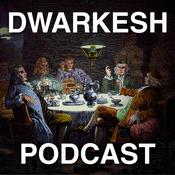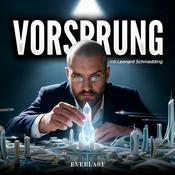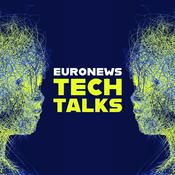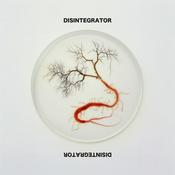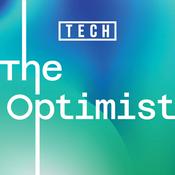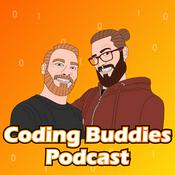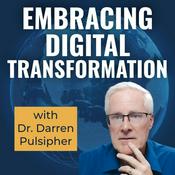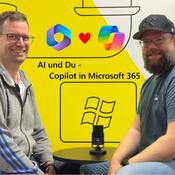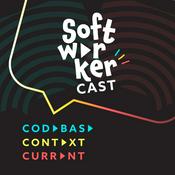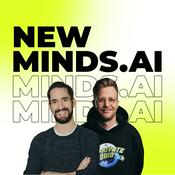21 Episoden
This Is a Fight Worth Having: The Case for Open Source AI | Raffi Krikorian, Mozilla CTO
27.1.2026 | 25 Min.In the first episode of Inference’s quarterly series on Open Source AI, we talk to Raffi Krikorian, CTO of Mozilla, about when open source AI stops being aspirational and becomes an operational choice.
We explore why stories like Pinterest saving $10 million by moving to open models are real, but often misunderstood, and why timing matters more than ideology. Raffi lays out his view of a missing “LAMP stack for AI” and explains why the hardest problem to solve isn’t models or data, but the connective glue that holds AI systems together.
Along the way, he shares how Mozilla is navigating these tradeoffs in practice, why even open-source-first organizations still rely on closed tools during experimentation, and what the browser era taught Mozilla about defaults, user choice, and long-term control.
He also shares a few practical recommendations in this episode that apply even if you’re still experimenting. Listen closely.
This conversation kicks off our Open Source AI series for 2026, focused on real tradeoffs, real economics, and the decisions companies are making right now. Follow on: https://www.turingpost.com/
*Did you like the episode? You know the drill:*
📌 Subscribe for more conversations with the builders shaping real-world AI.
💬 Leave a comment if this resonated.
👍 Like it if you liked it.
🫶 Thank you for watching and sharing!
*Guest:* Raffi Krikorian, CTO at Mozilla
LinkedIn: https://www.linkedin.com/in/rkrikorian/
Mozilla AI: https://mozilla.ai/
Mozilla Blog: https://blog.mozilla.org/en/mozilla/mozilla-open-source-ai-strategy/
*Links mentioned:*
Raffi's post here about our OSAI strategy: https://blog.mozilla.org/en/mozilla/mozilla-open-source-ai-strategy/
🌐 #1: Mastering Open Source AI in 2026: Essential Decisions for Builders https://www.turingpost.com/p/opensource1
Mozilla Data Collective: https://data.mozilla.org/
Langchain: https://www.langchain.com/
OpenRouter: https://openrouter.ai/
AI2 (Allen Institute for AI): https://allenai.org/
Flower AI (Federated Learning): https://flower.dev/
Einstein's Dreams by Alan Lightman: https://www.goodreads.com/book/show/14376.Einstein_s_Dreams
📰 The transcript and edited version at https://www.turingpost.com/krikorian
*Chapters:*
0:00 Cold Open — Values vs Economics in Open Source AI
0:28 Intro: Why This Season Focuses on Open Source AI
0:54 When Open Source Becomes a Business Decision
1:44 Pinterest Saved $10M + The Shift From Prototyping to Production
2:42 Mozilla’s “Choice Suite” + The Terraform “Exit Door”
5:21 Mozilla’s Mission: Do for AI What Mozilla Did for the Web
7:09 The “LAMP Stack” for AI + Standards Across the Stack
9:52 Small Models, Specialization, and Model Composability
15:45 Data, Privacy, and “I Own My Context”
18:36 “This Is a Fight Worth Having” + The Signal Analogy
21:42 1–2–3 Steps for Companies to Start (Instrument Choice Early)
24:22 Book Pick: Einstein’s Dreams + Closing
Turing Post is a newsletter about AI's past, present, and future. Ksenia Se explores how intelligent systems are built – and how they're changing how we think, work, and live.
*Follow us →*
Turing Post: https://x.com/TheTuringPost
Ksenia Se: https://www.linkedin.com/in/ksenia-se
https://huggingface.co/Kseniase
#OpenSourceAI #LAMPStackForAI #AIEconomics #MozillaAI #AIInfrastructure #DataProvenance #FederatedLearning #OpenModelsWhat AI Is Missing for Real Reasoning? Axiom Math’s Carina Hong on how to build an AI mathematician
04.12.2025 | 32 Min.Is math the ultimate test for AI reasoning? Or is next-token prediction fundamentally incapable of discovering new truths and discovering conjectures?
Carina Hong, co-founder and CEO of Axiom Math, argues that to build true reasoning capabilities, we need to move beyond "chatty" models to systems that can verify their own work using formal logic.
In this episode of Inference, we get into:
Why current LLMs are like secretaries (good at retrieval) but bad at de novo mathematics
The three pillars of an AI Mathematician
How AlphaGeometry proved that symbolic logic and neural networks must merge
The difference between AGI and Superintelligence
Why "Theory Building" is harder to benchmark than the International Math Olympiad (IMO)
The scarcity of formal math data (Lean) compared to Python code
We also discuss the bottlenecks: the "chicken and egg" problem of auto-formalization, why Axiom bets on specific superintelligence over general models, and how AI will serve as the algorithmic pillar for the future of hard science.
This is a conversation about the structure of truth, the limits of intuition, and what happens when machines start grading their own homework. Watch it!
Did you like the episode? You know the drill:
📌 Subscribe for more conversations with the builders shaping real-world AI.
💬 Leave a comment if this resonated.
👍 Like it if you liked it.
🫶 Thank you for watching and sharing!
*Guest:*
Carina Hong, co-founder and CEO of Axiom Math
https://www.axiom.xyz/
https://x.com/CarinaLHong
https://www.linkedin.com/in/carina-hong/
📰 The transcript and edited version at https://www.turingpost.com/carina/
Chapters:
0:53 Why LLMs Struggle with Basic Math
2:42 Building an AI Mathematician: The 3 Pillars (Prover, Knowledge Base, Conjecturer)
5:50 The Role of Human-AI Collaboration
6:34 Can AI Have Intuition? (Conjectures & AlphaGeometry)
10:16 A Hybrid Approach: LLMs + Formal Verification
11:24 Specialist Science Models vs. Generalist Giants
13:33 The Problem with Current AI Benchmarks
16:34 Practical Applications: Enterprise & Formal Verification
21:24 The Main Bottleneck: Data Scarcity
23:49 AGI vs. Superintelligence: The "Plate" Analogy
26:31 Book Recommendations (Math, Law, and Literature)
30:56 How to Use AI for Math Discovery Today
Turing Post is a newsletter about AI's past, present, and future. Ksenia Se explores how intelligent systems are built – and how they're changing how we think, work, and live.
Follow us →
Ksenia and Turing Post:
https://x.com/TheTuringPost
https://www.linkedin.com/in/ksenia-se
https://huggingface.co/Kseniase
#AI #FutureOfAI #MathAI #FormalVerification #Lean #AxiomMath #Superintelligence #Reasoning- Is security still about patching after the crash? Or do we need to rethink everything when AI can cause failures on its own?
Anneka Gupta, Chief Product Officer at Rubrik, argues we're now living in the world before the crash – where autonomous systems can create their own failures.
In this episode of Inference, we explore:
Why AI agents are "the human problem on steroids"
The three pillars of AI resilience: visibility, governance, and reversibility
How to log everything an agent does (and why that's harder than it sounds)
The mental shift from deterministic code to outcome-driven experimentation
Why most large enterprises are stuck in AI prototyping (70-90% never reach production)
The tension between letting agents act and keeping them safe
What an "undo button" for AGI would actually look like
How AGI will accelerate the cat-and-mouse game between attackers and defenders
We also discuss why teleportation beats all other sci-fi tech, why Asimov's philosophical approach to robots shaped her thinking, and how the fastest path to AI intuition is just... using it every day.
This is a conversation about designing for uncertainty, building guardrails without paralyzing innovation, and what security means when the system can outsmart its own rules.
Did you like the episode? You know the drill:
📌 Subscribe for more conversations with the builders shaping real-world AI.
💬 Leave a comment if this resonated.
👍 Like it if you liked it.
🫶 Thank you for watching and sharing!
Guest: Anneka Gupta, Chief Product Officer at Rubrik https://www.linkedin.com/in/annekagupta/
https://x.com/annekagupta
https://www.rubrik.com/
📰 Want the transcript and edited version?
Subscribe to Turing Post: https://www.turingpost.com/subscribe
Chapters:
Turing Post is a newsletter about AI's past, present, and future. Ksenia Se explores how intelligent systems are built – and how they're changing how we think, work, and live.
Follow us →
Ksenia and Turing Post:
https://x.com/TheTuringPost
https://www.linkedin.com/in/ksenia-se
https://huggingface.co/Kseniase
#AI #AIAgents #Cybersecurity #AIGovernance #EnterpriseAI #AIResilience #Rubrik #FutureOfSecurity Spencer Huang: NVIDIA’s Big Plan for Physical AI: Simulation, World Models, and the 3 Computers
04.12.2025 | 28 Min.When robots move into the real world, speed and safety come from simulation!
In his first sit-down interview, Spencer Huang – NVIDIA’s product lead for robotics software – talks about his role at NVIDIA, a flat organization where “you have access to everything.” We discuss how open source shapes NVIDIA’s robotics ecosystem, how robots learn physics through simulation, and why neural simulators and world models may evolve alongside conventional physics. I also ask him what’s harder: working on robotics or being Jensen Huang’s son.
Watch to learn a lot about robotics, NVIDIA, and its big plans ahead. It was a real pleasure chatting with Spencer.
*We cover:*
- NVIDIA’s big picture
- The “three computers” of robotics – training, simulation, deployment
- Isaac Lab, Arena, and the path to policy evaluation at scale
- Physics engines, interop, and why OpenUSD can unify fragmented toolchains
- Neural simulators vs conventional simulators – a data flywheel, not a rivalry
- Safety as an architecture problem – graceful failure and functional safety
- Synthetic data for manipulation – soft bodies, contact forces, distributional realism
- Why the biggest bottleneck is robotics data, and how open ecosystems help reach baseline
- NVIDIA’s “Mission is Boss” culture – cross-pollinating research into robotics
This is a ground-level look at how robots learn to handle the messy world – and why simulation needs both fidelity and diversity to produce robust skills.
*Chapters*:
0:22 The future of Physical AI begins here
1:00 Inside NVIDIA’s secret blueprint for teaching robots
3:46 Why safety is the hardest part of robotics
4:11 Simulation: the new classroom for machines
8:55 Can robots really understand physics?
13:55 How NVIDIA builds robot brains without a PhD
16:47 The plan to unify a fragmented robotics world
20:31 Why open source is NVIDIA’s biggest power move
21:21 What’s harder – robotics or being Jensen Huang’s son?
24:31 The one thing holding robotics back
27:56 The sci-fi books that shaped Spencer's mind
*Did you like the episode? You know the drill:*
📌 Subscribe for more conversations with the builders shaping real-world AI.
💬 Leave a comment if this resonated.
👍 Like it if you liked it.
🫶 Thank you for watching and sharing!
*Guest:* Spencer Huang, NVIDIA – a product line manager at NVIDIA leading robotics software product. His work centers on open-source simulation frameworks for robot learning, synthetic data generation methodologies, and advancing robot autonomy – from industrial mobile manipulators to generalist humanoid robots.
https://www.linkedin.com/in/spencermhuang/
*📰 Want the transcript and edited version?*
Find it here: https://www.turingpost.com/spencer
*Turing Post* is a newsletter about AI’s past, present, and future – exploring how intelligent systems are built and how they’re changing how we think, work, and live.
📩 Sign up: https://www.turingpost.com
Follow Ksenia Se and Turing Post:
https://x.com/TheTuringPost
https://www.linkedin.com/in/ksenia-se
https://huggingface.co/Kseniase
#robotics #simulation #NVIDIA #Omniverse #digitaltwins #worldmodels #physicalAI #reinforcementlearning #syntheticdata- When thousands of AI agents begin to act on our behalf, who builds the system they all run on?
Renen Hallak – founder and CEO of VAST Data – believes we’re witnessing the birth of an *AI Operating System*: a foundational layer that connects data, compute, and policy for the agentic era.
In this episode of Inference, we talk about how enterprises are moving from sandboxes and proof-of-concepts to full production agents, why *metadata matters more than “big data,”* and how the next infrastructure revolution will quietly define who controls intelligence at scale.
*We go deep into:*
What “AI OS” really means – and why the old stack can’t handle agentic systems
Why enterprises are underestimating the magnitude (but overestimating the speed) of this shift
The evolving role of data, metadata, and context in intelligent systems
How control, safety, and observability must be baked into infrastructure – not added later
Why Renen says the next 10 years will reshape everything – from jobs to the meaning of money
The ladder of progress: storage → database → data platform → operating system
What first-principles thinking looks like inside a company building for AGI-scale systems
This is a conversation about the architecture of the future – and the fine line between control and creativity when intelligence becomes infrastructure.
Watch the episode!
*Did you like the episode? You know the drill:*
📌 Subscribe for more conversations with the builders shaping real-world AI.
💬 Leave a comment if this resonated.
👍 Like it if you liked it.
🫶 Thank you for watching and sharing!
*Guest:* Renen Hallak, Founder & CEO, VAST Data
https://www.linkedin.com/in/renenh/
https://www.linkedin.com/company/vast-data/
*📰 Want the transcript and edited version?*
Find it here: https://www.turingpost.com/p/renen
*Chapters:*
*Turing Post* is a newsletter about AI’s past, present, and future – exploring how intelligent systems are built and how they’re changing how we think, work, and live.
📩 Sign up: https://www.turingpost.com
*Follow us:*
Ksenia and Turing Post:
https://x.com/TheTuringPost
https://www.linkedin.com/in/ksenia-se
https://huggingface.co/Kseniase
#agenticOS, #enterpriseAI, #metadata, #AIoperatingsystem, exabyte storage, GPUs, production AI
Weitere Technologie Podcasts
Trending Technologie Podcasts
Über Inference by Turing Post
Inference is Turing Post’s way of asking the big questions about AI — and refusing easy answers. Each episode starts with a simple prompt: “When will we…?” – and follows it wherever it leads.Host Ksenia Se sits down with the people shaping the future firsthand: researchers, founders, engineers, and entrepreneurs. The conversations are candid, sharp, and sometimes surprising – less about polished visions, more about the real work happening behind the scenes.It’s called Inference for a reason: opinions are great, but we want to connect the dots – between research breakthroughs, business moves, technical hurdles, and shifting ambitions.If you’re tired of vague futurism and ready for real conversations about what’s coming (and what’s not), this is your feed. Join us – and draw your own inference.
Podcast-WebsiteHöre Inference by Turing Post, Apfelfunk und viele andere Podcasts aus aller Welt mit der radio.de-App
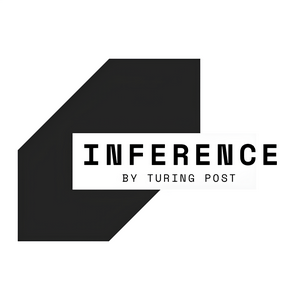
Hol dir die kostenlose radio.de App
- Sender und Podcasts favorisieren
- Streamen via Wifi oder Bluetooth
- Unterstützt Carplay & Android Auto
- viele weitere App Funktionen
Hol dir die kostenlose radio.de App
- Sender und Podcasts favorisieren
- Streamen via Wifi oder Bluetooth
- Unterstützt Carplay & Android Auto
- viele weitere App Funktionen


Inference by Turing Post
Code scannen,
App laden,
loshören.
App laden,
loshören.








